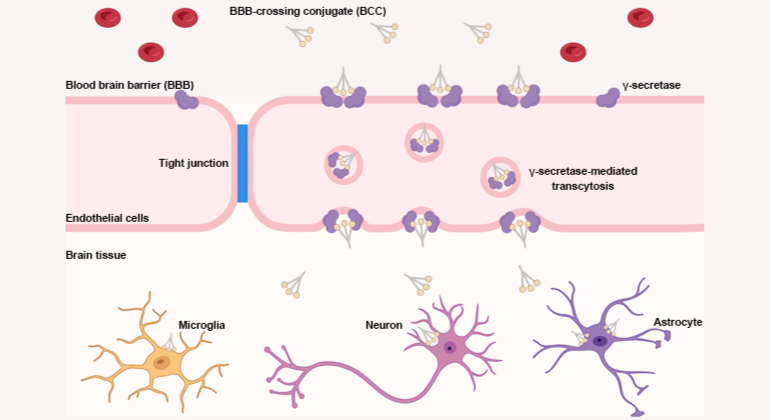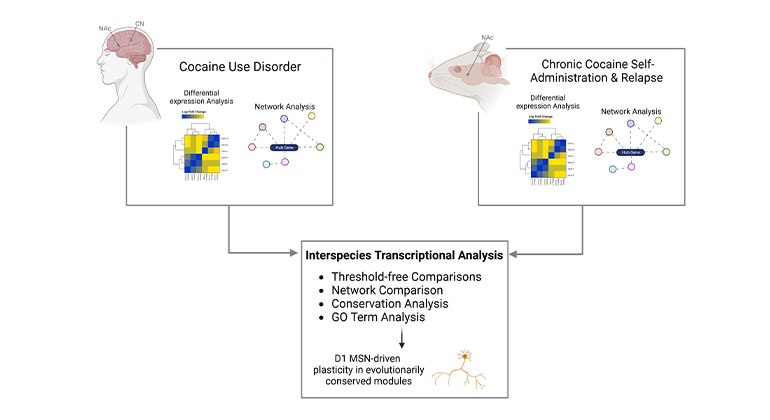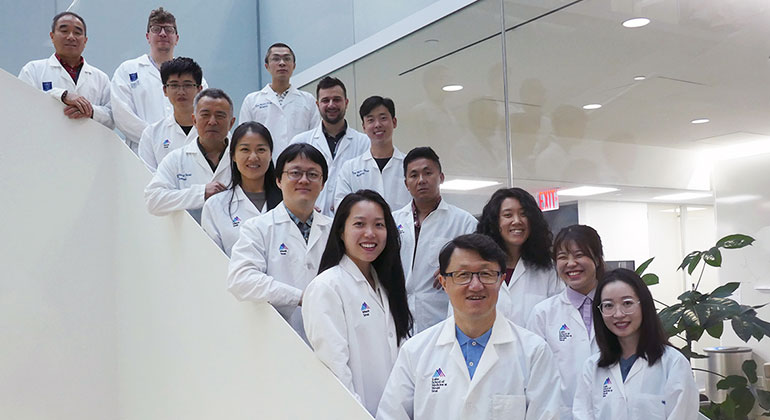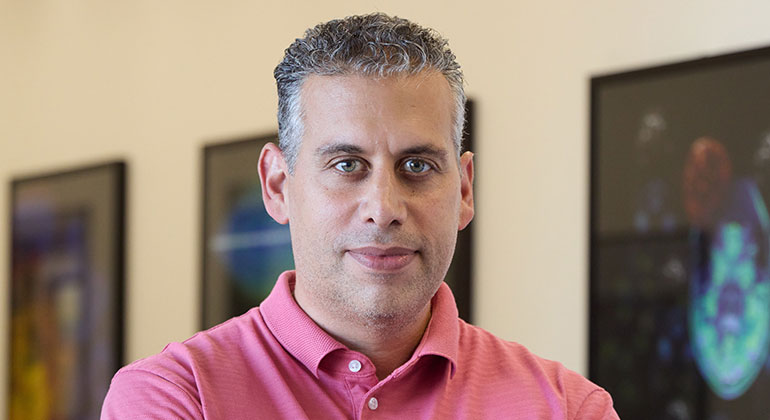Mount Sinai Neuroscientist Chosen as 2018 Pew Scholar by Pew Charitable Trusts
Scholarship provides resources for advancing exploration of fundamental biomedical questions
Erin L. Rich, MD, PhD, Assistant Professor in the Department of Neuroscience at the Icahn School of Medicine at Mount Sinai, was one of 22 early-career researchers to be chosen as a 2018 Pew scholar in biomedical sciences. This prestigious award provides Dr. Rich with a four-year grant to advance her exploration of the biological mechanisms underpinning human health and disease.
“The Pew scholar award is an extremely prestigious honor given to young researchers who demonstrate outstanding promise in biomedical research,” says Eric J. Nestler, MD, PhD, Dean for Academic and Scientific Affairs, Director of The Friedman Brain Institute, and Nash Family Professor of Neuroscience at the Icahn School of Medicine at Mount Sinai. “By bridging basic brain science with computational techniques to help uncover the cellular and circuit basis of motivation and decision-making, Dr. Rich has shown the creativity and innovation that Pew scholars embody. We are grateful to The Pew Charitable Trusts for recognizing her exceptional potential and providing crucial support for her scientific endeavors.”
The 2018 Pew scholars, all of whom have held assistant professor positions for three years or less, will receive four-year grants to advance their explorations. Selected from 184 nominations submitted by leading academic or research institutions across the United States, the 2018 awardees enter a vibrant community of researchers who have received awards from Pew since 1985. Current scholars meet annually to discuss their research, and exchange ideas with peers in fields outside their own.
Dr. Rich received a doctorate in neuroscience in 2008 from the Icahn School of Medicine at Mount Sinai and went on to complete her medical degree and postdoctoral training at the University of California, Berkeley. In 2017, Dr. Rich returned to Mount Sinai as an assistant professor in the Department of Neuroscience.
Dr. Rich’s lab is exploring how the brain uses expectations to motivate behavior, and how it adjusts those expectations when situations change. Expectations, which are based on past experience, color how we perceive and interact with the world. Producing and acting on such predictions requires a coordinated interplay among a number of brain regions, including those involved in perception, memory, and cognition. To study these networks, Dr. Rich’s lab has studied reward-seeking behaviors influenced by the expectation of receiving an incentive. Using a combination of cutting-edge computational and neurophysiological techniques, her team is investigating how the neural activity in a network of key brain areas changes when the research subject seeks one outcome but receives another. Specifically, they will assess the role that emotional-processing centers play in expectations that erroneously guide reward seeking, and how brain networks allow the new, conflicting information to override previous expectations. This work could provide novel insights into disorders that involve inappropriate or inflexible expectations such as anxiety, depression, and substance abuse, paving the way for novel circuit-modulating therapeutics.
“These scientists have shown the boldness and creativity that drives great discoveries, and Pew’s unrestricted support will help them follow the facts wherever they lead,” says Rebecca W. Rimel, president and CEO of The Pew Charitable Trusts. “We’re proud to invest in this gifted group at a pivotal stage in their careers when funds to pursue new concepts and methods can be scarce.”
“I am honored to have been chosen amongst a group of such esteemed fellow researchers and will be forever grateful to Pew for their support to help me continue the work I am so passionate about,” says Dr. Rich. “I look forward to working closely with the other 2018 scholars and members of the Pew community.”
Visit the 2018 Pew Scholars program page to read the scholars’ full abstracts and learn more about the program.
About the Mount Sinai Health System
Mount Sinai Health System is one of the largest academic medical systems in the New York metro area, with 48,000 employees working across seven hospitals, more than 400 outpatient practices, more than 600 research and clinical labs, a school of nursing, and a leading school of medicine and graduate education. Mount Sinai advances health for all people, everywhere, by taking on the most complex health care challenges of our time—discovering and applying new scientific learning and knowledge; developing safer, more effective treatments; educating the next generation of medical leaders and innovators; and supporting local communities by delivering high-quality care to all who need it.
Through the integration of its hospitals, labs, and schools, Mount Sinai offers comprehensive health care solutions from birth through geriatrics, leveraging innovative approaches such as artificial intelligence and informatics while keeping patients’ medical and emotional needs at the center of all treatment. The Health System includes approximately 9,000 primary and specialty care physicians and 11 free-standing joint-venture centers throughout the five boroughs of New York City, Westchester, Long Island, and Florida. Hospitals within the System are consistently ranked by Newsweek’s® “The World’s Best Smart Hospitals, Best in State Hospitals, World Best Hospitals and Best Specialty Hospitals” and by U.S. News & World Report's® “Best Hospitals” and “Best Children’s Hospitals.” The Mount Sinai Hospital is on the U.S. News & World Report® “Best Hospitals” Honor Roll for 2024-2025.
For more information, visit https://www.mountsinai.org or find Mount Sinai on Facebook, Twitter and YouTube.
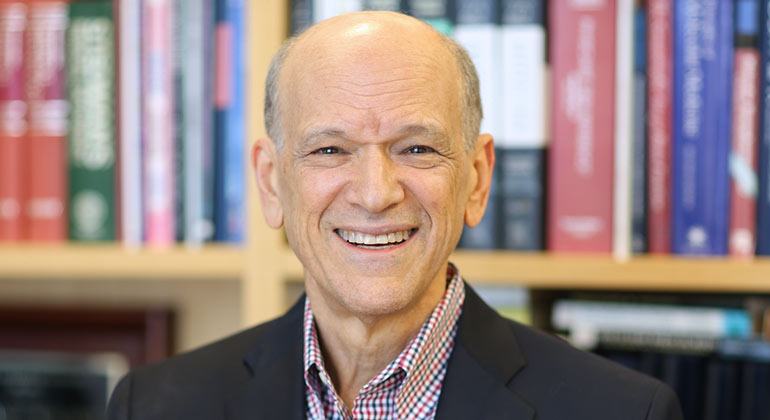
Eric J. Nestler, MD, PhD, Wins the 2023 Peter Seeburg Integrative Neuroscience Prize
Oct 30, 2023 View All Press Releases
Mount Sinai Neurobiologist Selected as a Howard Hughes Medical Institute Investigator
Sep 23, 2021 View All Press Releases